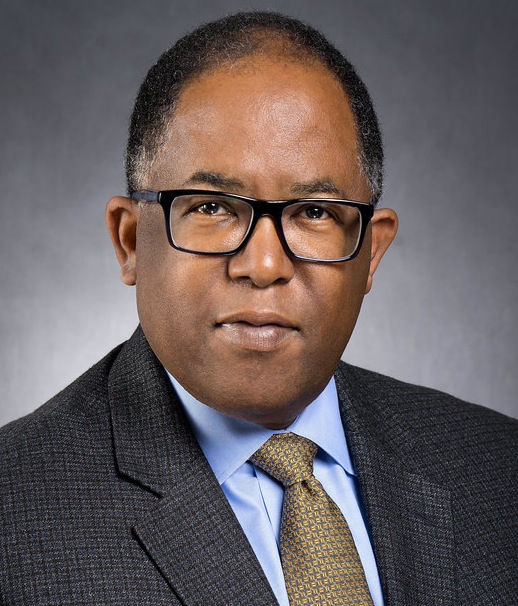By Stephen Wyer
Contributing Writer
LOS ANGELES — Homelessness and a looming eviction crisis are among the issues in City Council District 10 between county Supervisor Mark Ridley-Thomas and Grace Yoo for the Nov. 3 election.
In the March primary, political veteran Ridley-Thomas received the most votes, garnering 44.3% of ballots cast but falling short of the 50% needed to avoid a November runoff.
Yoo, an attorney and nonprofit founder, received 23.6% of votes in the primary to force a runoff in a race that featured five candidates.
Ridley-Thomas and Yoo are running to replace current Councilman Herb Wesson, who has represented District 10 since 2005 and cannot run for re-election because of the city’s term limits rule. Wesson is campaigning to replace Ridley-Thomas on the county Board of Supervisors and is facing a runoff battle there Nov. 3 against state Sen. Holly Mitchell.
District 10 covers nearly 300,000 residents in 52 neighborhoods in an area stretching from Baldwin Village to Koreatown.
The two candidates come into the race from markedly distinct backgrounds. In addition to having served on the Board of Supervisors, Ridley-Thomas served on the City Council from 1991 to 2002, when he was elected to the state Assembly. After four years in the Assembly he was elected to the state Senate in 2006 and then jumped from the Senate to the Board of Supervisors in 2008 when Yvonne Brathwaite Burke was forced out office by term limits.
Yoo, by contrast, has never held elected office, but touts her background as an activist lawyer and a political outsider as strengths. She speaks with pride about her past experiences taking on special interests as an attorney, such as a 2018 lawsuit that she won against a Colony Holdings, a major real estate developer.
The developer attempted to construct a 27-story apartment tower in Koreatown, but ignored environmental regulations, as well as concerns about the project’s impact on traffic and public safety. Yoo was able to get a Superior Court judge to overturn the city’s approval of the development.
“I’m not a career politician,” Yoo said. “I have advocated my entire professional career for my neighbors and working-class families; and for people who have been ignored by local government. When it comes down to calling out what’s wrong, I’ll do it.”
In contrast, Ridley-Thomas emphasizes his background in public service, pointing to his decades of political experience as being one of the main separating factors between himself and Yoo.
“The difference between Grace and myself is that I’m a change agent who delivers, while she is someone who wants to be in public office but doesn’t know the mechanics of office or the dynamics of being a difference maker on a whole range of issues from housing to public safety, jobs, etc.” he said.
Both candidates pledged to tackle homelessness in District 10, where the rate of unhoused residents increased by 23% last year.
Riddley-Thomas stressed his role in authoring and sponsoring Measure H, a law passed in 2018 that created a sales tax to fund homeless services and short-term housing in Los Angeles. (Measure H complemented Measure HHH, a 2016 law that provided $1.2 billion in funding for subsidizing affordable housing).
“Measure H has been probably the most significant down payment with respect to the work on homelessness in this city, bar none. That happened because of my leadership,” Ridley-Thomas said.
Yoo also committed to prioritizing the issue of homelessness, if elected to the City Council. She was critical of the city’s current affordable housing developments, noting that units built from Measure HHH funding have cost taxpayers up to $700,000. She emphasized her support for adaptive reuse, a strategy that focuses on taking existing unused structures — such as vacant lots and abandoned commercial buildings — and transforming them into housing for the homeless.
Susie Shannon, an executive board member of the California Democratic Party, said that both candidates need to prioritize protecting renter’s rights if serious about reducing homelessness in the district.
“Renter protections are among the most important things that the incoming council member will be working on and dealing with — there’s a lot at stake here,” said Shannon, noting that up to 4.3 million Californians face possible evictions once government protections expire.
While Ridley-Thomas enters the race as the favored candidate, the fact that the election will require a runoff at all is reflective of an electorate that is hungry for serious change on issues ranging from renter protections to the public health crisis created by COVID-19, Shannon said.
“We are in extraordinary times right now, and it’s very important for candidates to understand that the narrative they’ve been operating on and the arguments they’ve been using are no longer viable,” she said.
“The fact that Ridley-Thomas didn’t reach 50% of the primary vote is telling. Voters have said clearly that they want more of a conversation about what’s going on.”
Yoo said that one of her main goals in office would be to strengthen existing anti-corruption entities within the city government, namely the L.A. City Ethics Commission and the L.A. City Controller’s Office.
Yoo proposes to give those organizations independent income streams (both currently rely upon the mayor’s office and the City Council for funding approval). She says that this policy would increase the political independence of both entities and allow for more effective audits of the City Council itself to hold officials accountable.
“If you’re the city controller and you need to do an audit and you have to come to the City Council for money, do you really think the council members want that?” Yoo asked. “City Council members don’t want to be audited. It’s like having the fox watch the henhouse.”











